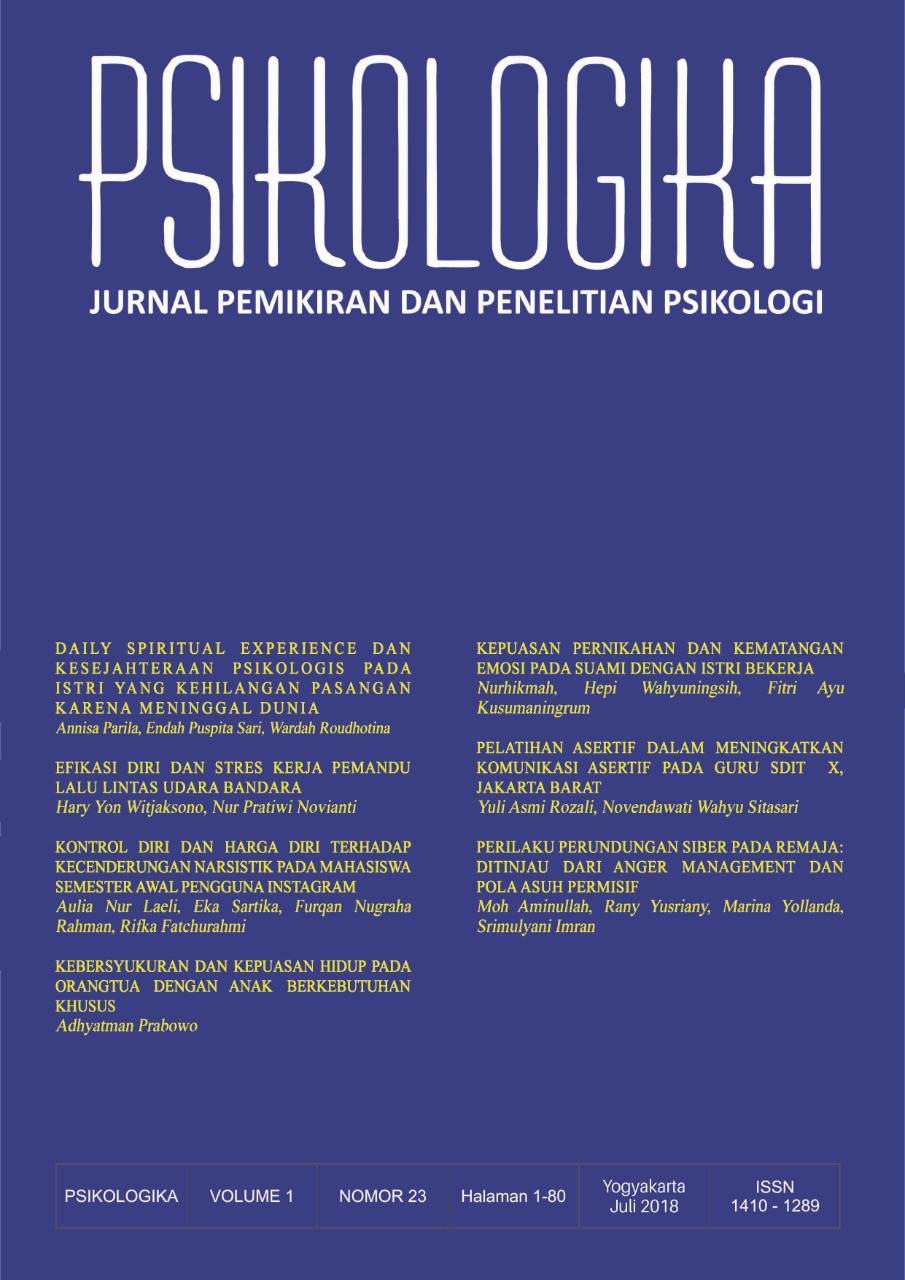Main Article Content
Abstract
A senior college student is an individual who is in a transition from college to work life. In this transition period, last-year college students need to prepare themselves to face difference role as a worker. Furthermore, the phenomenon of college students who do not always work in accordance to their majors getting more. Therefore, having high career adaptability is important skill for students. One of the important factor that can influence an individual's career choice is an external factor or can be called as a form contextual support and barrier. This research was conducted to find out the role of contextual support and barrier to career adaptability at final grade student in Jabodetabek. The study used a Career Adapt-Abilities Scale (CAAS) and Contextual Support and Barriers Scale (CSB). The subjects of this study were 270 college students in Jabodetabek, which obtained from quota sampling technique in each region is represented by 30 sample. The role of contextual support and barrier to career adaptability tested by simple regression. The results showed that contextual support participated for 14.5% of career adaptability (p <0.05). Meanwhile, contextual barriers felt by final-year college student are insignificant to career adaptability. Therefore, giving support to final-year college students is an intervention that can be given to improve their career adaptability.
Article Details
License
Authors who publish with this journal agree to the following terms:
- Authors retain copyright and grant the journal right of first publication with the work simultaneously licensed under a Creative Commons Attribution-ShareAlike 4.0 International License that allows others to share the work with an acknowledgment of the work's authorship and initial publication in this journal.
- Authors are able to enter into separate, additional contractual arrangements for the non-exclusive distribution of the journal's published version of the work (e.g., post it to an institutional repository or publish it in a book), with an acknowledgment of its initial publication in this journal.
- Authors are permitted and encouraged to post their work online (e.g., in institutional repositories or on their website) prior to and during the submission process, as it can lead to productive exchanges, as well as earlier and greater citation of published work (See The Effect of Open Access).




